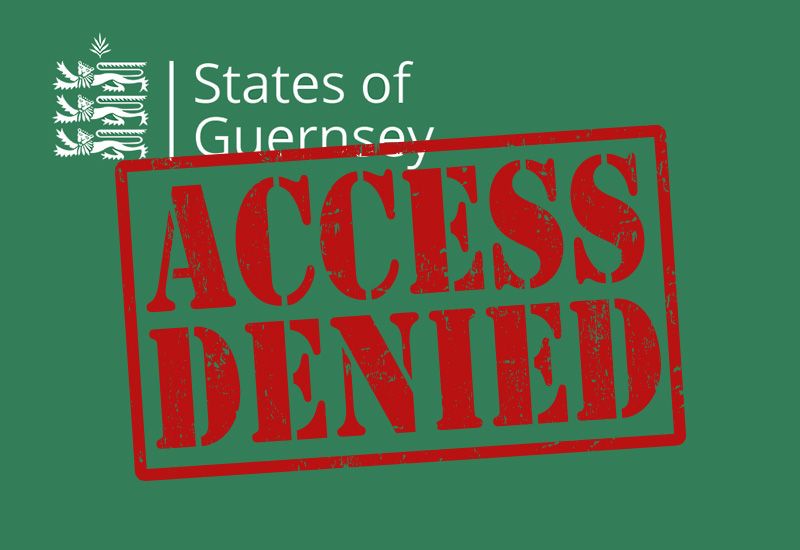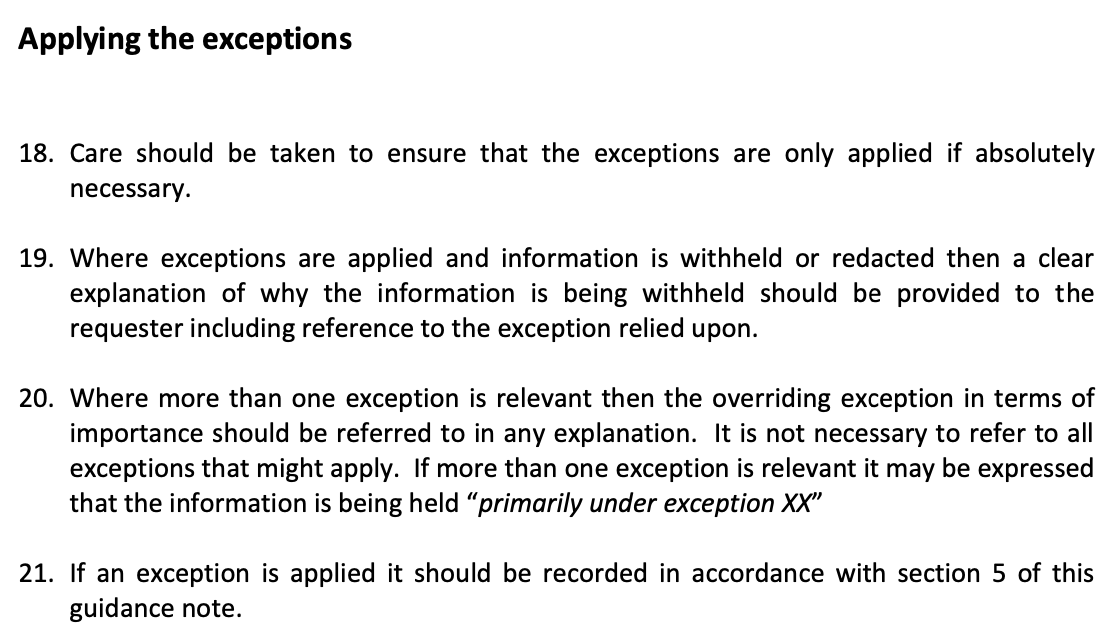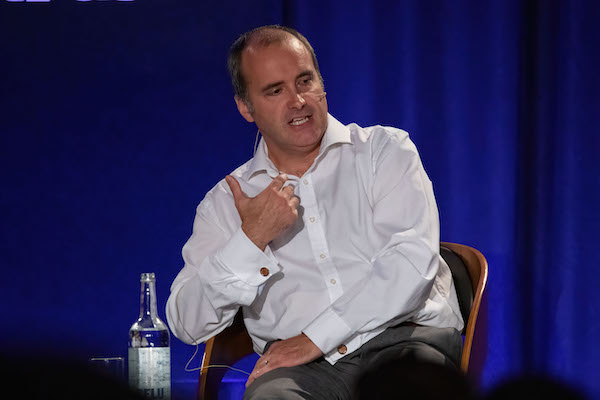


Cost and the unlikelihood of either legislative or political priority have been given as reasons not to introduce a full Freedom of Information Law, with Scrutiny instead suggesting a model that would expect - but not compel - the States to answer valid requests for public information.
The Scrutiny Management Committee is recommending that the current Code of Practice on Access to Public Information is "strengthened" expediently and at low-cost through an independent appeals process.
The committee says this would add an extra layer of oversight to the application of exemptions, which can be used in various circumstances by States committees and departments.
It would not, however, be binding, meaning that the panel's rulings could be ignored by the States without any legal recourse.

Pictured: The guidance given to States employees on applying 'exemptions' to information requests.
It comes following a two-year review of the current API Code which was initiated and completed by the previous Scrutiny Committee.
While that committee was understood to be in favour of a full Freedom of Information Law, its successors will not recommend it to the States when the report goes to the Assembly for debate next month.
"The recommended changes are proportionate and pragmatic, and do not require legislative drafting or significant expense at a time when pressures are being exerted in both areas," says the committee in its policy letter.

Pictured: In 2019, a Scrutiny Review Panel was formed, led by then-Scrutiny President Chris Green, pictured, Advocate Peter Harwood and then-Deputy Jennifer Merrett, in order to investigate the costs and benefits of a Freedom of Information Law.
"This Committee is also mindful that, even if the States Assembly were to support a full Freedom of Information Law, it is unlikely to be given drafting priority and it could be a number of years before its enactment."
Scrutiny President Yvonne Burford and her committee will put three different options before the States and let the Assembly decide.
"These are: to introduce Freedom of Information legislation at a cost (subject to further work by the Policy & Resources Committee); to improve the current Access to Public Information Code by means of the introduction of an independent appeal process, which can be done swiftly and at no additional cost; or to leave the current Access to Public Information arrangements unchanged."

Pictured: Deputy Simon Fairclough is in favour of working up proposals for a Freedom of Information Law, while Deputies Yvonne Burford and John Dyke are not.
One committee member - Deputy Simon Fairclough - stands alone in believing that the States should work up fully detailed and costed proposals for an FoI Law.
The committee looked at set-up and running costs for Jersey's FoI Law and that of fellow Crown Dependency, the Isle of Man.
It is estimated that the net additional cost would be somewhere between £200,000 to £900,000 per year, depending on the chosen approach. Set up costs are likely to range from anywhere between £500,000 and £2.68 million, according to Scrutiny.
An independent appeals panel could be set up and the roles filled by the end of the year. Once in situ, people who have been denied access to public information because of an 'exemption' would have their case heard by the panel.
If the exemption is dismissed, the relevant committee or department would, Scrutiny say, "be expected" to release the information.
However, the States would be on a sound legal footing if it chose to veto the panel's recommendation, with Scrutiny admitting "there would be no legal powers to challenge such a refusal."
What that means is that there would be nothing compelling them to release the information at all.
Mindful of this, Scrutiny says it would publish the number of cases, if any, where committees had vetoed the requirement, in its annual report.
If a significant level of non-compliance with the decisions of the Independent Appeals Panel becomes evident, the committee reiterates that it has the option to return to the States with proposals for further strengthening of the code, including legislative measures.
Comments
Comments on this story express the views of the commentator only, not Bailiwick Publishing. We are unable to guarantee the accuracy of any of those comments.